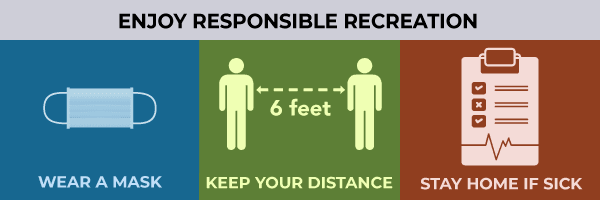
improving safety of youth in Michigan’s institutions

Press Release FOR IMMEDIATE RELEASE: March 23, 2021 CONTACT: Bob Wheaton, 517-241-2112, wheatonb@ Focus on improving safety of youth in Michigan’s child-caring institutions and juvenile justice facilities will continue Committee wraps up work after setting stage for improvements LANSING, Mich. – Michigan youth who are under state care and supervision in child-caring institutions and juvenile justice facilities will be safer because of the work of a diverse group of child welfare stakeholders that is holding its last meeting today. The group’s accomplishments include revising Michigan licensing rules to eliminate the use of physical restraints and seclusion in child-caring institutions, and creating a statewide Youth Advisory Board made up of children who have experienced the child welfare system. The Child-Caring Institution Steering Committee formed by the Michigan Department of Health and Human Services (MDHHS) began meeting in September 2020 in response to a report from national experts recommending improved oversight of safety and quality of care to children receiving residential services – including a move towards restraint-free programs. Former MDHHS Children’s Services Agency executive director JooYeun Chang requested the review following the tragic death of a youth in May 2020 due to improper and unnecessary restraint in a licensed facility. “MDHHS remains dedicated to improving safety and quality of care in Michigan’s child-caring institutions and reducing reliance on congregate care,” said Stacie Bladen, interim Children’s Services Agency executive director and co-chair of the steering committee. Members and workgroup participants moved the state closer to eliminating coercive interventions in residential programs and improving positive long-term outcomes for children and their families. The proposed licensing rules – if approved following a public hearing – will permanently ban restraint and seclusion in child-caring institutions. They will take the place of temporary emergency rules that are in place until July. The statewide Youth Advisory Board will be critical in reviewing and recommending changes in policy and practice to better support youth and families in the child welfare system. The board began meeting this month, led by Brandi McKenzie, MDHHS Youth in Transition analyst, and Christine Hansen, Michigan Youth Opportunities Initiative coordinator. Steering Committee co-chair Sean de Four, chief executive officer of Southwest Solutions in Detroit, said providers remain committed to working with the state and stakeholders to safely and effectively support youth who have experienced trauma. “This effort was a true partnership between the provider community, MDHHS and a wide variety of stakeholders on behalf of the children and families who require the intensive treatment provided by Michigan’s residential care settings,” he said. “We came together as a community committed to transforming our system, to ensure that tragedies like the one that brought us together never happen again. After six months of diligent effort, we are confident that the reforms developed by the workgroups will move us toward a radically improved system of residential care.” Other reform measures from the steering committee include:
“The Six Core Strategies© training through Building Bridges Initiative was pivotal for our agency in considering our areas of strength and our areas to develop more fully in supporting youth in residential programming, said Mary Muliett, chief executive officer of D.A. Blodgett – St. Johns, a child-caring institution. “The sessions spurred energy and thought from our whole team and was an amazing launching point towards creating an even stronger model for youth and their families. We are grateful for the department’s support in these efforts.” The steering committee consisted of seven workgroups focused on intervention policy and practice, contract monitoring, licensing oversight, data reporting, caseworker policy and practice, youth and family engagement, and financial and organization structures. |





 Want to see more stunning pictures like this, taken by Michigan state parks photo ambassador
Want to see more stunning pictures like this, taken by Michigan state parks photo ambassador  Have questions about fishing in Michigan and 2021 fishing regulations? Check out these upcoming virtual “Conversations & Coffee” events, focusing on fisheries management areas around the state, to get answers and talk with DNR Fisheries Division staff.
Have questions about fishing in Michigan and 2021 fishing regulations? Check out these upcoming virtual “Conversations & Coffee” events, focusing on fisheries management areas around the state, to get answers and talk with DNR Fisheries Division staff.
 Want to learn more about what Michigan is doing to prevent and control invasive plants, pests and animals? The Michigan Invasive Species Program’s NotMISpecies webinar series explores how agencies, universities and locally led organizations are working together to protect Michigan’s natural resources. The series examines species-specific actions, innovations in research and technology, and programs designed to help communities prevent and manage harmful invasive species.
Want to learn more about what Michigan is doing to prevent and control invasive plants, pests and animals? The Michigan Invasive Species Program’s NotMISpecies webinar series explores how agencies, universities and locally led organizations are working together to protect Michigan’s natural resources. The series examines species-specific actions, innovations in research and technology, and programs designed to help communities prevent and manage harmful invasive species.
 The sun is out, and so are new virtual backgrounds from the DNR!
The sun is out, and so are new virtual backgrounds from the DNR!







